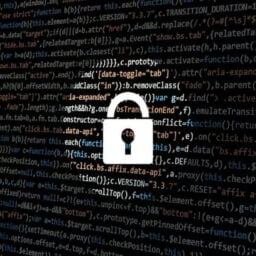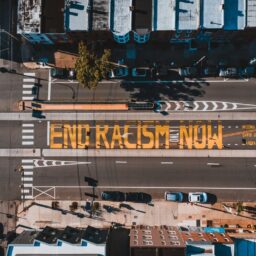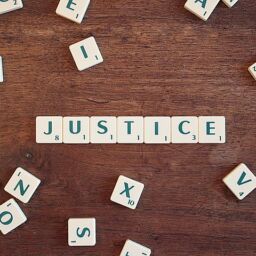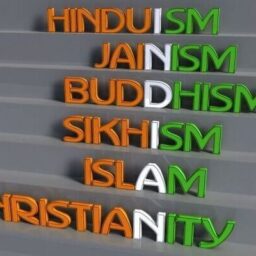INTRODUCTION
“The generally prevailing view of the whistleblower within the business on the part of the management and colleagues is that this person is the traitor to the organization.”
– Richard DeGeorge
In the world of corporate ethics, professionals who expose faults or errors in the design of an artefact that constitutes a major threat to a customer’s safety are known as whistleblowers. The term has progressively acquired acceptance among scholars and laypeople as a term for exposing acts of corruption, fraud, or general abuses of authority.
THE BUBBLE OF EXTREME RATIO VIEW
The Extrema Ratio explanation of whistleblowing is commonly referred to as the received interpretation of whistleblowing among philosophers. This group of supporters views whistleblowing as an individual response to some organised misconduct, thus going beyond the customary responsibilities of a member of an organisation. Individuals should act out of individual dissent to express themselves when standard organisational reporting procedures become unviable, impracticable, or inefficient.[1] According to adherents of the Extrema Ratio viewpoint, whistleblowing is always presumed to be wrong. Only if all other normal reporting methods have failed and a corrective measure against organisational wrongdoing cannot be performed otherwise can moral reasons be proven for such a request. Whistleblowing is described as a Personal Extrema Ratio vs organisational wrongdoing, representing a threshold condition that distinguishes between whistleblowing reports that identify tangible and measurable harm to individuals and society, and mere complaints.
SHOULD IT BE A DEONTIC VIEW?
A deontological motive is an emotional reaction to behaviours that go against or undermine social norms. Whistleblowing, according to the Deontic perspective, is a constructive (rather than merely courageous) act that is inherent in the normal framework of accountability methods that legitimate organisations must use to assess their overall performance and members’ contributions. Deontological reactions have become widely acknowledged as a sensible approach to analysing unfair situations in contemporary organisational justice studies.[2] These behaviours aren’t always motivated by self-interest, but rather by a proclivity to recognise and respond to injustice in general. In fairness theory, having a deontological stance is the starting point for evaluating scenarios between an accused perpetrator and a victim, regardless of whether the perpetrator is the victim or not, or whether the victim has any relationship with the perpetrator.
Whistleblowing can cause excruciating tensions if it disturbs colleagues who are involved in wrongdoing at work or goes against the tide in an organisation that encourages unethical behaviour.
WHAT DO BOWNIE AND SISSELA HAVE ON THEIR MINDS?
For the sake of ethical leadership, an employer and a stakeholder must always be loyal to one another. In the best interests of the organisation, one must behave properly and disclose misconduct as soon as it is discovered. Empathy cannot take the place of accountability and responsibility.[3] Whistleblowers raise their voices when they recognise that remaining silent will cause more damage than good. Whistleblowers who behave ethically are individuals who think they are operating in the best interests of the public. In such a case, the individual acknowledges the consequences of her conduct, i.e., she is held accountable for her acts. In his book Business Ethics, Norman Bowie argues that whistleblowing breaches workers’ duty of loyalty to their companies. A duty of loyalty, according to Bowie, precludes one from complaining about their job or organisation. In Bowie’s opinion, this is only a prima facie responsibility, which implies that a higher duty to the public good might trump it. However, Bowie began by believing that whistleblowing is a form of disloyalty. Bowie, though, is not alone. According to Sissela Bok, whistleblowing is defined as disloyalty.[4] While the whistle-blower intends to stop the game, he is neither a coach nor a referee, and he blows the whistle against his own team, which calls his allegiance into question. He has responsibilities toward his coworkers and clients as part of the responsibilities he has taken on. He may have made a secrecy vow or taken a loyalty oath. In this scenario, devotion to colleagues and clients clashes with allegiance to the public good, which is to protect people who would suffer without discovering the truth.
WHISTLEBLOWERS PROTECTION ACT
Under the act, a mechanism is established for the receipt of complaints relating to allegations of corruption or willful misuse of power against public servants, and for the investigation of such allegations. Furthermore, the law protects the individual who files such a complaint from victimization. Those with a public interest may disclose that information before a Competent Authority. A variety of competent authorities have been outlined in the law. Prime Ministers are competent authorities to file complaints against any minister of the union. The competent authority will not take any action if a complainant cannot establish their identity and the law forbids anonymous complaints. The Whistleblowers Act overrides the Official Secrets Act of 1923 and permits a complainant to make disclosures in the public interest even if he or she violates the later act without harming the nation’s sovereignty.
TUG OF WAR: LOYALTY VS PRINCIPLES DILEMMA
In truth, loyalty and principle are usually at odds with one another. The moral quandary that whistleblowers face in this way: “the ethics of whistleblowing must conflict not only with honesty and self-loyalty but also with societal responsibilities.” This quandary creates tension not only between integrity and ethics but also between commitments to others. Despite contradicting expectations that whistleblowers act in the best interests of their organisation while also acting in the best interests of the public, whistleblowers must deal with competing expectations.
The initiative’s goal is to eliminate the need for whistleblowers to blow the whistle. Companies should do all possible to avoid a whistleblowing disaster. Finally, this goal could be realised by institutionalising a culture in which reporting negative news is encouraged as part of the organization’s routine operations.[5] As a result, organisations must be reorganised to foster whistle-blowing systems that authorise and/or encourage citizens to reveal information about abnormalities to specific officials or entities. Ideally, all of an organization’s communication lines should be open so that a possible whistleblower can communicate negative news in a way that prevents it from reaching the top echelons. Instead of just brushing bad news under the rug, these top structures should deal with it.
CONCLUSION
Creating an environment where the message is put first rather than the messenger should be emphasized. An organisation’s alignment with business ethics must change to be a core value. A truly ethical workplace is one where congruent morality prevails, and ethical culture is one in which raising concerns, without necessarily blowing the whistle formally, is an acceptable way of conducting the business of the organization.
Author(s) Name: Anushka Singh (NMIMS, Navi Mumbai)
References:
[1] Mesmer-Magnus, J. R., & Viswesvaran, C. (2005), Whistleblowing in organizations: An examination of correlates of whistleblowing intentions, actions, and retaliation. Journal of business ethics, 62(3), 277-297.
[2] Boot, E. R. (2020). The feasibility of a public interest defense for whistleblowing. Law and Philosophy, 39(1), 1-34.
[3] Lindblom, L. (2007). Dissolving the moral dilemma of whistleblowing. Journal of Business Ethics, 76(4), 413-426.
[4] Bok, S. (1980). Whistleblowing and professional responsibilities. In Ethics teaching in higher education (pp. 277-295). Springer, Boston, MA.
[5] Davis, M. (1996). Some paradoxes of whistleblowing. Business & Professional Ethics Journal, 3-19.
















